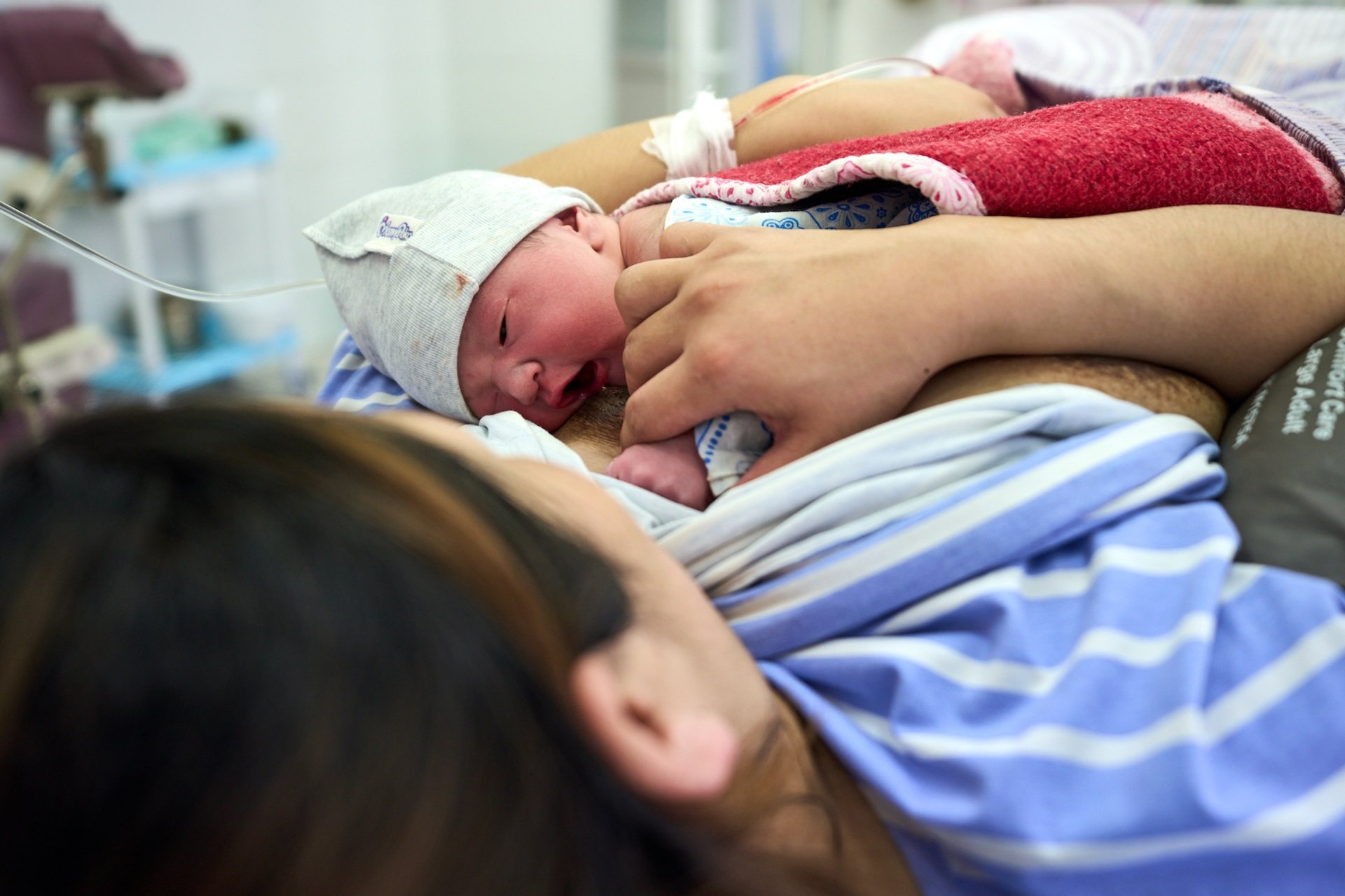Essential Newborn Care
Essential newborn care should be provided immediately after birth and includes practices such as drying and warming the baby, skin-to-skin contact, early breastfeeding, and cord clamping. The first few hours after a baby is born are crucial for their health and well-being.
Essential newborn care (enc) involves a series of interventions that should be provided immediately after birth. These practices include drying and warming the baby, skin-to-skin contact, early breastfeeding, and delayed cord clamping. Enc has been shown to greatly reduce the risk of newborn mortality and morbidity, as well as facilitate mother-baby bonding.
This article will discuss the importance of essential newborn care and the steps involved in its implementation.

Credit: pediatrixmd.com
What Is Essential Newborn Care?
Essential newborn care refers to the important practices and procedures done to ensure the health and well-being of a newborn from the moment of birth until the first few weeks of life. These practices include essential immunizations, skin-to-skin contact, exclusive breastfeeding, and keeping the umbilical cord stump clean and dry until it falls off.
Essential newborn care helps to reduce the risk of newborn infections, increases the chances of breastfeeding success, and promotes healthy development. It is crucial to seek the guidance of a healthcare professional to ensure proper essential newborn care is given to the newborn in order to increase their chance of survival and growth.
As such, it is important for parents and caregivers to be aware of the importance of essential newborn care for the betterment of newborns.
Essential Newborn Care Procedures
Essential newborn care involves crucial procedures during delivery and after birth. Skin-to-skin contact between the mother and baby has immense benefits for both. This helps in regulating the baby’s temperature, heart rate, and breathing. The first breastfeeding within the first hour of birth aids in bonding and ensures that the baby receives important nutrients and antibodies.
Basic newborn screening tests check for any underlying health conditions that need medical attention. Following these essential procedures can significantly aid in the healthy growth and development of the newborn.
Benefits Of Essential Newborn Care
Essential newborn care can offer numerous benefits for both the baby and mother. For the baby, it can lead to a stronger immune system, better sleep patterns, and higher chances of survival. For the mother, it can aid in breastfeeding, improve maternal bonding, and lower the risk of postpartum depression.
Additionally, essential newborn care promotes family bonding as it involves the participation of family members in caring for the baby. These benefits are essential, as they can set the foundation for a healthy start to a child’s life and improve the overall well-being of the entire family.
It is important to prioritize essential newborn care to promote positive outcomes for both the baby and mother, both physically and emotionally.
Challenges To Essential Newborn Care
Providing essential newborn care can be a challenging task for health care professionals. One of the biggest challenges is lack of resources, including equipment and trained staff. In some countries, health facilities may be missing essential equipment or be understaffed, leading to inadequate care for newborns.
Another challenge is cultural beliefs and practices surrounding newborn care, which may prevent families from seeking appropriate medical attention. Moreover, socioeconomic status plays a pivotal role as mothers and guardians from low-income families may lack access to quality healthcare. To overcome these challenges, collaboration is key.
Government and non-governmental organisations can work together to improve access to essential newborn care by providing necessary resources, education and awareness to the community.
Making Essential Newborn Care A Priority
To improve the healthcare systems, making essential newborn care a priority is crucial. Governments and policymakers play an essential role in promoting it. They need to implement relevant policies and guidelines to ensure that healthcare facilities are providing adequate newborn care.
It involves in practices such as immediate and exclusive breastfeeding within the first hour of birth, basic newborn care, and vaccination. These measures can help to prevent and manage common neonatal disorders and reduce mortality rates. Additionally, healthcare providers should be given relevant training and support to provide high-quality newborn care and ensure that all newborns receive the same standards of care.
Prioritizing essential newborn care can improve the health outcomes of newborns and establish a strong foundation for their healthy future.
The Future Of Essential Newborn Care
Essential newborn care is constantly evolving and improving. With innovative approaches such as telemedicine and community-based care, it is possible to reach more mothers and newborns with essential care interventions. However, continued research and development is needed to keep up with the everchanging landscape of healthcare.
This includes studying the use of mobile technology and artificial intelligence to increase the accuracy and speed of diagnoses. Additionally, investing in training programs for healthcare workers can help ensure that essential care is provided with the highest quality. These efforts can lead to reduced infant mortality rates and improved overall health outcomes for newborns and their families.
It is crucial that we continue to push for advancements in essential newborn care.
Frequently Asked Questions Of Essential Newborn Care
What Is Essential Newborn Care?
Essential newborn care refers to the basic care that a newborn baby needs immediately after birth.
What Are The Key Components Of its?
The key components of newborn care include immediate and thorough drying, skin-to-skin contact, early initiation of breastfeeding, and temperature regulation.
Why Is Skin-To-Skin Contact Important?
Skin-to-skin contact is important because it helps to regulate the baby’s body temperature, stabilizes the baby’s breathing and heart rate, and promotes bonding between the baby and the parents.
Why Is Early Initiation Of Breastfeeding Important?
Early initiation of breastfeeding is important because it provides the baby with colostrum, which is rich in nutrients and antibodies that help to protect the baby from infections and stimulate the baby’s immune system.
What Can Parents Do To Ensure That Their Newborn Receives Care?
To ensure that their newborn receives care, parents can work closely with their healthcare provider or midwife, attend childbirth and breastfeeding classes, and develop a birth plan that includes their preferences for newborn care.
Conclusion
As parents, taking care of a newborn baby can be an overwhelming experience, but it doesn’t have to be. By following basic newborn care tips, you can create a safe and comfortable environment for your little one. We have discussed the five crucial things every parent should keep in mind, including feeding, bathing, dressing, keeping them warm, and seeking professional help.
Remember that every baby is unique, and it may take some time to figure out what works best for you and your little one. However, with patience, love, and support, you can navigate through this new journey smoothly. Ultimately, a happy and healthy baby is all that matters.
Take care of yourselves and your babies; the rest will fall into place.







One thought on “Essential Newborn Care”
Comments are closed.